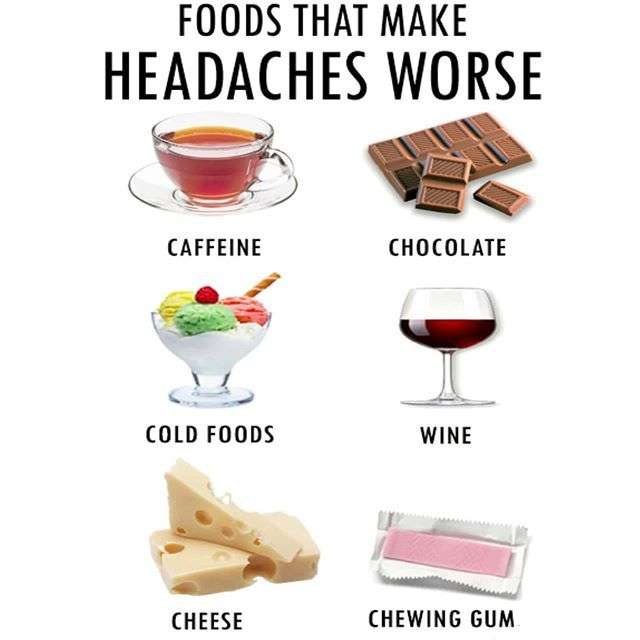Buying Green Tea Supplements
Supplements aren’t regulated by the U.S. Food and Drug Administration .
Always read the labels on supplements. They’ll tell you the strength of the product plus any additional ingredients it contains.
To make sure a supplement contains the amounts of catechins and caffeine listed, look for a seal of approval from a third-party testing organization. ConsumerLab is a common one.
That lets you know the label is accurate and the product isn’t contaminated in potentially harmful ways.
What Is The Best Herbal Tea For Treating Gout
Research indicates that ginger tea is the best herbal tea for reducing the pain and inflammation related to gout.
Gout is caused by high uric acid in the blood that builds up in the joints. Ginger tea may help with lowering the levels of uric acid. Other common home remedies include cherry juice and magnesium supplements.
Also, avoiding or reducing the consumption of alcohol and sugar may help with preventing the gout symptoms.
No Bones About It: Drinking Coffee May Increase Arthritis Risk
“This is probably the most comprehensive look at a large number of patients to look at a potential risk factor,” says Beth Jonas, MD. But Jonas, a clinical assistant professor of orthopaedic surgery at the University of North Carolina, Chapel Hill, and a board-certified rheumatologists, hastens to add that these findings raise many unanswered questions, and that the coffee-drinking habits of those in Finland may not be comparable to those of Americans. Jonas was not involved in the study.
Rheumatoid arthritis is inflammation of the lining of the joints in the body and can lead to deformity and disability. It occurs when the body’s immune system attacks the joints, although it is not known why. There is also no cure.
Lead author M. Heliövaara, MD, and his colleagues at the Social Insurance Institution, Research and Development Centre in Turku, Finland, studied the association between coffee drinking, rheumatoid arthritis, and a blood marker called rheumatoid factor that is found in about half the cases of rheumatoid arthritis. They published their findings in the Annals of Rheumatic Disease.
In two large studies starting in the 1970s, Finnish adults were asked questions about their medical history and smoking and drinking habits, as well as their coffee intake. After following the adults for about 15 years, the researchers used health records to determine the number of people who went on to develop rheumatoid factor or rheumatoid arthritis.
Recommended Reading: Does Coffee Help Lose Weight
Can Social Support Help Cancer Patients Going Through Treatment
Questions on #vitamind
Questions on #antioxidants
Questions on #vitamine
Caffeine Can Help Reduce Joint And Other Pain

Synopsis: Information regarding the pain relief benefits of caffeine consumption and why caffeine is added to pain relievers like ibuprofen or acetaminophen. In humans, caffeine acts as a central nervous system stimulant, temporarily warding off drowsiness and restoring alertness. Caffeine blocks receptors in the brain called, ‘adenosines,’ which in turn induce relaxation and activate dopamine chemicals associated with both pain relief and energy.
Read Also: Verismo System Pods
Navigating Your Arthritis With Diet
If your specific type of arthritis has you confused about which type of foods you should eat, don’t let that worry you. “An anti-inflammatory eating pattern can be perfectly safe for any type of arthritis,” Wyosnick assures.
If you have food allergies or want to confirm an allergy or intolerance that may be aggravating your arthritis pain, speak with your doctor.
In addition, a registered dietitian can help you evaluate your current diet, remove troublesome foods from your diet and add in foods that may help provide some relief.
How Much Caffeine Is Too Much
Patients with RA often experience fatigue, so they may turn to coffee to give them a boost. Other people simply like the taste or are in the habit of drinking it.
RELATED: Should You Add Protein to Your Coffee?
Experts say that until more research clarifies caffeines role theres probably no reason to stop drinking what you love. You might want to drink in moderation something like a cup or glass or two a day especially if caffeine makes you hyper or keeps you up at night.
The U.S. Food and Drug Administration does say that up to four or five cups of coffee, some 400 mg a day, is not associated with any dangerous side effect, but it notes that people vary in their sensitivity, and that some medications can impact caffeine metabolism.
Youre definitely overconsuming if you experience insomnia, jitters, a fast heart rate, nausea, a headache, or other unwanted effects, the FDA says. If you decide to cut back, do so gradually to avoid unpleasant withdrawal symptoms like headaches or anxiety.
Don’t Miss: Does Starbucks Teach You How To Make Coffee
Green Tea Prevents Bone And Cartilage Loss In Arthritis
In certain arthritis, like rheumatoid arthritis and osteoarthritis there is degradation of cartilage by some influence on chondrocytes to destroy its own matrix.
Chondroprotective agents protect the chondrocytes and prevent cartilage degradation leading to the prevention of arthritis.
Green tea compounds, especially EGCG has been found to show chondroprotective effect in osteoarthritis in the animal model.
In another study, EGCG has been found to be a potent chondroprotective agent. In human chondrocytes, it could suppress inflammatory responses that lead to degradation of cartilage in case of osteoarthritis.
What does it mean? It means green tea can prevent certain arthritis that is caused as a result of cartilage degradation. Green tea compounds prevent this degradation by suppressing the responses in chondrocytes that cause inflammation.
Potential Risks Of Caffeine
Although caffeine has some health benefits, you shouldnt consume it heavily. Caffeine can interact with medications and health conditions to cause negative consequences. Consider the following before consuming caffeine:
Habit-Forming
First and foremost, caffeine is habit-forming and may become addictive. Consuming caffeine in large amounts for a long period of time can lead to withdrawal feelings such as headaches and irritability in many people. While caffeine withdrawal is mild compared to many other forms of withdrawal, it can still be unpleasant. Consider the potential effects before increasing your caffeine consumption.
May Cause Headaches
Caffeine can lead to headaches and migraines for two reasons. First, if you have formed a caffeine addiction, failing to consume caffeine one day can lead to withdrawal symptoms like headaches. Meanwhile, consuming a much larger amount of caffeine than you normally do can also cause headaches. While some patients who have migraines find caffeine to help reduce their symptoms, other people find that consuming caffeine triggers migraines.
Continued
Read Also: Folgers Decaf Coffee Caffeine Content
Doctors Are Learning That One Of The Best Ways To Reduce Inflammation Lies Not In The Medicine Cabinet But In The Refrigerator By Following An Anti
What does an anti-inflammatory diet do? Your immune system becomes activated when your body recognizes anything that is foreignsuch as an invading microbe, plant pollen, or chemical. This often triggers a process called inflammation. Intermittent bouts of inflammation directed at truly threatening invaders protect your health.
However, sometimes inflammation persists, day in and day out, even when you are not threatened by a foreign invader. Thats when inflammation can become your enemy. Many major diseases that plague usincluding cancer, heart disease, diabetes, arthritis, depression, and Alzheimershave been linked to chronic inflammation.
One of the most powerful tools to combat inflammation comes not from the pharmacy, but from the grocery store. Many experimental studies have shown that components of foods or beverages may have anti-inflammatory effects, says Dr. Frank Hu, professor of nutrition and epidemiology in the Department of Nutrition at the Harvard School of Public Health.
Choose the right anti-inflammatory foods, and you may be able to reduce your risk of illness. Consistently pick the wrong ones, and you could accelerate the inflammatory disease process.
|
Try to avoid or limit these foods as much as possible:
|
Health Benefits Of Tea
Spurred on by promising studies, researchers are also looking at teas ability to:
- Promote heart health. Studies show that tea can help lower cholesterol and triglyceride levels in people with cardiovascular disease.
- Fight cancer. Polyphenols will induce certain tumor cells toward apoptosis , explains Stephen D. Hsu, PhD, a researcher at Georgia Health Sciences University in Augusta.
- Improve bone strength. One study found that green tea improves both bone quality and strength. Another found tea drinkers over 50 had a 30%reduced risk of hip fractures.
- Rejuvenate skin cells. Hsu says green tea seems to promote healthy skin cell growth, which could help wound healing and psoriasis.
- Protect the brain. A United Kingdom lab study suggests black and green tea may slow the progression of Alzheimers disease. A German lab study suggests green tea may inhibit the inflammation and neural damage associated with the progression of multiple sclerosis.
Don’t Miss: Black Rifle Coffee Offensive
Not Getting Enough Activity
Gentle physical activity wont make your joints worse. In fact, the exact opposite is true whether you have osteoarthritis , rheumatoid arthritis, or psoriatic arthritis. Research shows when done correctly, even a little bit of exercise can help decrease arthritis pain and stiffness. Thats because any sort of movement helps lubricate the joints kind of like oil on a creaky hinge. Daily activities, such as sweeping the kitchen floor or talking the dog for a stroll, also help.
So does doing some stretching every day even if you have a flare of RA or an increase in OA pain, says Wayne Johnson, MD, orthopedic surgeon and assistant clinical professor at the University of Oklahoma. Simple movements to help you stay active can help diminish some of the pain and maintain range-of-motion. Check out these range-of-motion stretches you can start doing every morning.
What Are The Causes Of Joint Pain

If youre experiencing joint pain, its likely that you suffer from arthritis. There are other reasons for joint pain but arthritis is the most common cause of joint pain in adults. If you suffer from Osteoarthritis, joint pain is caused by the protective cartilage in your joints breaking down.
If you have Rheumatoid Arthritis, then you have an autoimmune disease where your bodys immune system attacks the joints and other organs.
You May Like: How To Brew Dunkin Donuts Coffee At Home
Good News For Coffee Drinkers
Incident RA rates did not differ between the coffee drinkers and the non-coffee drinkers this did not change based on how much coffee was consumed, how it was prepared , or whether or not it was caffeinated.
Results differed among the tea drinkers: There was a positive association of incident RA and caffeinated tea consumption in the trend test . When assessing any caffeinated tea consumption versus no tea consumption, the hazard ratio for incident RA was 1.40 .
The authors concluded that there was a small association between daily non-herbal tea consumption and incident RA.
Tips For Relieving Joint Pain And Inflammation Naturally
Instead of taking drugs, there are also natural ways to treat your joint pain and stiffness.
As you can see,there are many herbal teas that have pain-relieving and anti-inflammatory effects making them potent complementary or alternative remedies for arthritis.
When using herbal teas, one of the most effective ways is to combine them into powerful blends. For example, you can try this golden milk tea recipe, that combines turmeric, ginger, and other ingredients into a powerful herbal remedy.
To wrap things up, here are my best tips for relieving arthritis symptoms:
Don’t Miss: Folgers Classic Roast Instant Coffee Caffeine Content
The Mystery Of How Caffeine Helps Pain Remains
The question of how caffeine works to reduce pain or help pain relievers to relieve pain remains. The mechanisms are not well understood. In simple terms – caffeine blocks a person’s pain receptors.
Do you feel like gambling? Some studies have shown that low doses of caffeine might actually have the opposite effect. Caffeine, according to these studies, inhibits blocking pain receptors yet what does this information mean to you or me? It is possible that a cup of coffee or tea, or small amounts of other foods or beverages containing less than 100 mg of caffeine, might prevent other pain relievers from working! The same inhibitory effect of low doses of caffeine has been observed with electrical stimulation and acupuncture.
Still, researchers are not quite ready to state that people should avoid caffeine prior to using electrical stimulation to control pain, or before acupuncture treatment. Additional studies on the effects of different doses of caffeine are needed before any specific guidelines on caffeine use can be determined. It sounds like 4 cups or more might help, but more studies are needed.
Caffeines Role In Articular Cartilage: Osteoarthritis
5.1.1. Prenatal Caffeine Exposure
As evidenced above, PCE induces OA-like features in rat cartilage . Similarly, excessive physical activity also promotes cartilage alterations like those found in OA, increasing the risk of OA . In agreement with this, PCE further increased the Mankins score of rats exposed to excessive physical activity, suggesting that PCE may also increase OA susceptibility . Supporting this, the cartilage of rats exposed to both PCE and excessive physical activity exhibited rougher articular surfaces, increased worn and torn cartilage surfaces, an increased number of clefts, reduced matrix safranin-O staining , a reduced number of chondrocytes, and increased blurred tidemarks .
Apart from the observed additive effects of PCE-induced cartilage matrix alterations on typical OA matrix lesions, it has been suggested that PCE may also contribute to OA susceptibility through diverse specific mechanisms . Among these mechanisms are alterations of chondrocyte vitality and differentiation , an alteration of cholesterol metabolism , and the reduction of the circulating and local levels of IGF-1 during fetal development .
5.1.2. Direct and Indirect Effect of Caffeine on Articular Chondrocytes
You May Like: How Much Caffeine In Folgers Decaf Coffee
Do Coffee Or Tea Cause Ra
In a recent study, researchers evaluated whether daily consumption of coffee or caffeinated non-herbal tea was associated with older onset rheumatoid arthritis . The study authors found no association between coffee and RA, but tea drinkers had increased RA risk.
Data were collected from the Womens Health Initiative Observational Study, a longitudinal, prospective cohort study of women that took place between 1993 and 1998. A total of 76,853 women filled out a survey regarding their daily tea and coffee habits after three years, 185 women self-reported incident RA cases. The researchers implemented Multivariable Cox proportional hazards models to assess any correlation between daily beverage consumption and incident RA, and they calculated trend tests with categorical variables modeled as a continuous variable without collapsing.
Green Tea Has Antimicrobial Action That Benefits In Septic Arthritis
One of the causes of arthritis is microbial infections. Infectious/ septic arthritis is caused by a bacterial infection in the joints.
Some of the common bacteria causing this are Staphylococcus aureus, E.coli, and Haemophillus influenza.
These microorganisms attack the synovial fluid in the joint and cause inflammation resulting in severe pain.
Some of the catechins present in green tea have been found to have an anti microbial effect.
These are epigallocatechin , epicatechin gallate and epigallocatechin gallate .
These compounds inhibit bacterial infection by damaging the cell membrane of the bacteria or by inhibiting the synthesis of fatty acid or certain enzymes in the bacterial cell that are important for its survival.
Certain other infections also cause arthritis as a symptom. For example, in chikungunya virus infection, arthritic pain can persist for a long time.
In a study, green tea catechins were able to inhibit this infection.
What does it mean? It means green tea can be used for treatment of various infection related arthritis. The green tea compounds can restrain the infection by preventing microbes to interact with the cells of the body.By their antimicrobial actions, green tea catechins can prevent the occurrence of arthritis as well as can be used to relieve the pain.
Read Also: How Much Caffeine Is In Sonic Iced Coffee
Coffee: Health Benefits And Risks
Coffee contains a variety of nutrients and acts as a stimulant. Caffeine stimulates the central nervous system to increase alertness, memory, concentration, and physical performance.
Coffee is a low-calorie beverage when drank by itself, with fewer than 5 calories per 8-ounce cup. In addition to caffeine, coffee also provides:
- Polyphenols
- Niacin
Can Caffeine Consumption Hurt Your Joints

-
Some studies suggest that caffeinated drinks may reduce the risk of conditions that cause joint pain.
-
Mixed results are reported on whether decaf coffee increases or decreases the same risk.
-
Drinking coffee showed a greater reduction in joint-related disease risk than caffeinated tea.
Joint pain is a symptom of many diseases, the most common being osteoarthritis. Diseases that cause joint pain can be bone diseases or less direct diseases like depression.
There are a number of remedies to help prevent joint pain: maintaining a healthy weight, diet, and exercise. Another trick that you may already be doing is drinking caffeine. In this article, we explore the studies conducted associating diseases that cause joint pain and caffeine intake.
Read Also: How To Brew Dunkin Donuts Coffee At Home